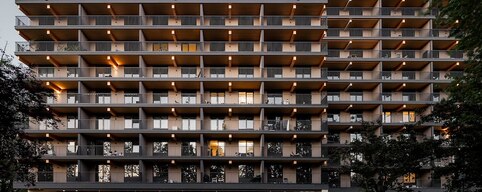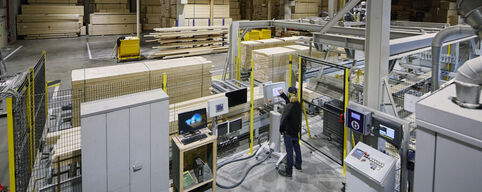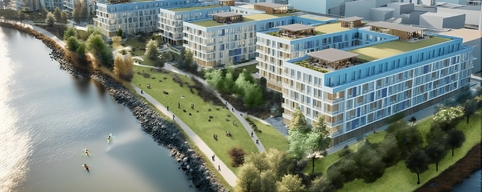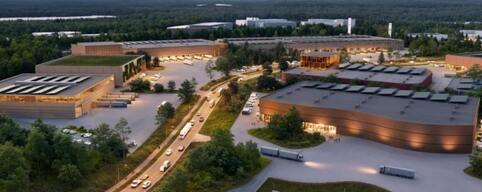

For several years now, the construction sector in France has been going through a difficult period, marked by a decrease in new construction and an increase in the cost of materials. Maison Maugy, an iconic company founded in 1921 in Iville, in the Eure department, is feeling the repercussions. Historically recognized for its expertise in the traditional construction of single-family homes, the company has had to review its strategy in the face of current economic challenges.
March 20, 2025, marked a decisive turning point for Maison Maugy, with the inauguration of their new workshop in Iville. On this occasion, the company unveiled a complete reorientation of its activities, abandoning the traditional construction of single-family homes as well as expansion and renovation projects. This radical choice was motivated by the need to adapt in response to a market situation that has become too uncertain and volatile.
From now on, Maison Maugy will focus exclusively on the prefabrication of wooden frame walls and roof boxes, an activity based on industrial processes that are more rational and less sensitive to the vagaries of the real estate market. This shift towards prefabrication is in response to a growing demand for ecological, economical and quick-to-implement solutions. By refocusing its activities on factory manufacturing, Maison Maugy is capitalizing on its know-how while seeking to ensure its sustainability in a rapidly changing sector.
This ambitious conversion project was made possible thanks to a significant investment of 2.5 million euros, most of which received financial support from the government's France Relance plan. This program aims to boost the French economy after the disruptions caused by the Covid-19 pandemic, and supports companies in their efforts towards innovation and ecological transition.
Another key factor in this successful transformation has been the involvement of the employees. Maison Maugy has chosen to carry out this reorientation in close consultation with its employees, thus favoring a collaborative approach. The discussions have made it possible to make all the teams aware of the current economic challenges and to fully engage them in this new stage.
By focusing on the manufacture of prefabricated components, Maison Maugy is adopting an economic model in which these products are intended to be sold to builders, who will then take care of their on-site assembly. This change marks not only an important strategic shift, but also a pragmatic adaptation to a rapidly changing market.
However, this decision was not taken lightly. It was a necessary response to a prolonged crisis in the house building sector. Maison Maugy thus illustrates how long-standing companies can choose to reinvent themselves, even after more than a century of existence, to not only survive but also thrive in a complex socio-economic environment.



